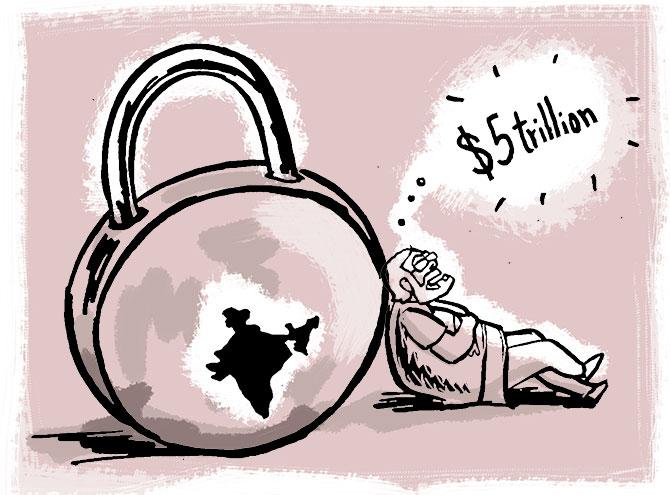India will become the world's third largest economy by 2026 as its GDP in current dollar terms will reach $5 trillion in that year and further rise to $5.5 trillion in 2027, former Niti Aayog vice chairman Arvind Panagariya said on Friday.

Delivering the 18th C D Deshmukh Memorial Lecture titled 'India at 125: Reclaiming the Lost Glory and Returning the Global Economy to the Old Normal', he said it is unlikely that GDP in current dollar terms of either Germany or Japan will cross $5 trillion-mark in the coming three years.
Japan will have to sustain a growth rate of 3.5 per cent in current dollar terms to reach $5.03 trillion in 2027 from its 2022 level of $4.2 trillion, he said.
At the 4 per cent annual growth rate, German GDP will rise from $4.4 trillion in 2023 to $4.9 trillion in 2026 and $5.1 trillion in 2027, he said.
"Given these estimates, how soon can the Indian GDP cross the GDPs of these two countries?.. that is the question," Panagariya said.
India has grown at an annual average rate of 10.22 per cent in current dollar terms.
"At this rate, India's GDP in current dollars will reach $5 trillion in 2026 and $5.5 trillion in 2027.
"This means that there are good prospects that India will become the world's third economy by the end of 2026, sooner than nearly all current predictions," he said.
To realise its full potential, Panagariya said India must take the steps necessary to help its economic units grow larger.
"Small habitations, small farms, and small enterprises are intimately linked.
"Reforms that will help the enterprises in industry and services grow larger will create job opportunities for the masses, which will, in turn, pave the way for workers to migrate from rural to urban areas," he said.
According to him, such migration will automatically increase land per worker in farming while also bringing more and more of the population to where development is.
"With the population becoming progressively concentrated in urban agglomerations, we will also see larger economic units replace some smaller ones in areas such as schools and colleges," he added.
"I am confident we are on the cusp of a new chapter in India's history," Panagariya said.
While the next two decades will see the fastest transformation in the country's history, given the large economic base already established and a high expected growth rate, the following three will witness unsurpassed and steadily rising prosperity, he said.
Chintaman Dwarakanath Deshmukh was the first Indian to serve as the Governor of the Reserve Bank of India.
During his term from 1943 to 1949, the landmark Banking Companies Act of 1949, which was later renamed as the Banking Regulation Act, came into force.










